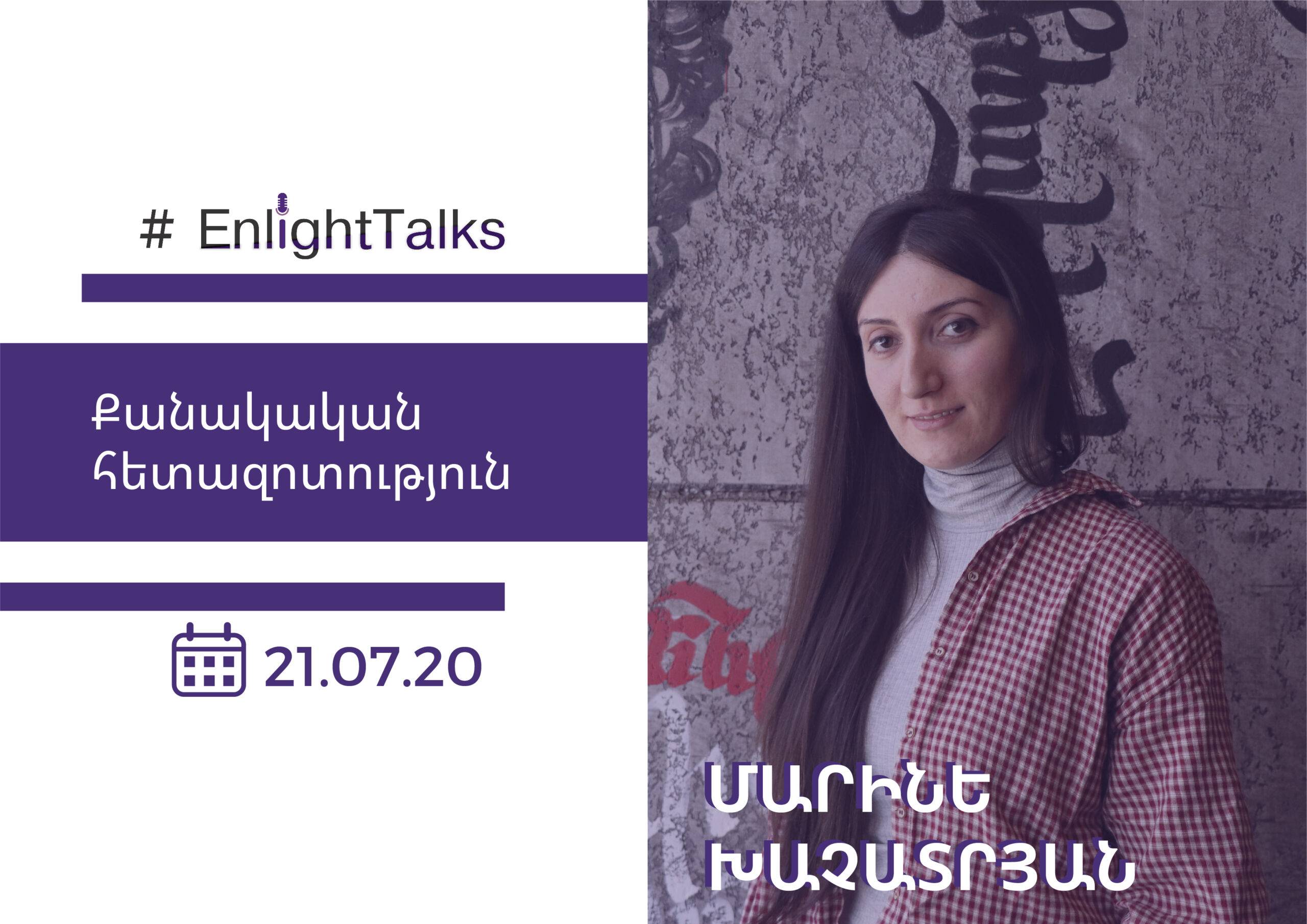#EnlightTalks series within the framework of “Enlight” three-month analytical internship program.
On July 21, within the framework of analytical practice, the discourse of an “Enlight” analyst and art critic by profession Marine Khachatryan on “Quantitative research” took place.
At the beginning of her speech the analyst gave an overview of the definition, types and classification of research. Before proceeding to the main material, the quantitative research, the speaker also gave a certain idea about qualitative and quantitative research and the existing differences between them: according to which, the qualitative research, unlike the quantitative one, is based not on mathematical calculations, but on logical assumptions. There is no objective reality for the qualitative research as such.
Quantitative researches, in turn, are divided into several types: descriptive, explanatory, causal, experimental.
The speaker presented in detail the components of quantitative research: hypothesis, independent and dependent variables.
After giving general information about quantitative research, the speaker presented the stages of conducting quantitative research.
At the first stage, after choosing the topic of the research, the problem must be studied, based on it, one must conduct a literature study, present hypothesis and collect and analyse data. The speaker presented in detail the methods of data collection: surveys, interview, group discussions. One of the most common options is to conduct surveys, and the speaker believes that a superb questionnaire is needed to conduct a high-quality survey.
There are two types of data obtained from the collection: primary and secondary.The speaker presented how the research centres carry out their work and what methodology they use.
The analyses of the Caucasian barometer, based on the usage of the SPSS database was remarkable. As a result of the analyses the speaker singled out some factors, between which the participants tried to find certain connections: fatalism and political activity, religion and level of trust, religion and political participation, etc.
You can get acquainted with Marine Khachatryan‘s analytical articles by following this link.
Prepared by Emma Mikayelyan
Translator: Lilit Arsenyan © All rights reserved
